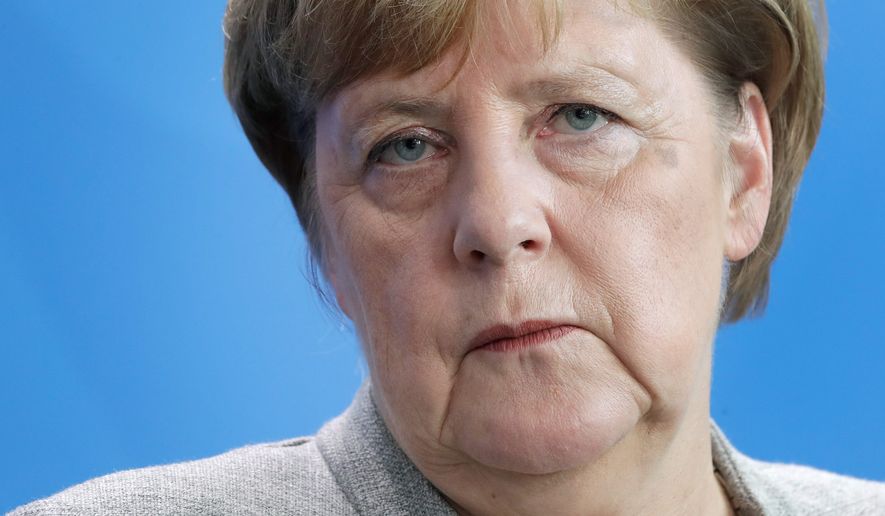In a major blow to Chancellor Angela Merkel, the German leader’s political allies suffered huge losses Sunday in Bavarian state elections, with the polarizing issue of immigration central to the outcome.
Exit polls showed the Christian Social Union (CSU) was on course to lose significant ground in the Bavarian state parliament, pulling only 37 percent of Sunday’s vote, down from 47.7 percent five years ago.
The CSU has governed the state almost single-handedly since 1957, but support has been slipping.
Constant squabbling in Ms. Merkel’s national government has weighed on the CSU, which is traditionally a touch more right-wing than the chancellor’s party.
There were gains for parties to its left and right.
The Green Party won up to 18 percent to secure second place, more than double their support in 2013, according to early projections.
The far-right Alternative for Germany party, or AfD, was set to enter the state legislature with around 11 percent of the vote.
The center-left Social Democrats, Ms. Merkel’s other coalition partner in Berlin, were on course for a disastrous fifth-place result of 10 percent or less.
Bavaria, the prosperous southeastern state that is home to some 13 million of Germany’s 82 million people, has been governed by the CSU for more than six decades.
Needing coalition partners to govern is itself a major setback for the party, which only exists in Bavaria.
“Of course this isn’t an easy day for the CSU,” the state’s governor, Markus Soeder, told supporters in Munich, adding that the party accepted the “painful” result “with humility.”
But he stressed that the CSU still emerged as the state’s strongest party with a mandate to form the next Bavarian government.
Mr. Soeder said his preference was for a center-right coalition — which would see the CSU partner with the Free Voters, a local center-right party.
The Greens, traditionally bitter opponents of the Christian Social Union, with a more liberal approach to immigration and an emphasis on environmental issues, are another possibility.
The CSU has long leveraged its strength at the state level to punch above its weight in national politics.
In Berlin, the party is one of three in Ms. Merkel’s coalition federal government along with its conservative sister, Ms. Merkel’s Christian Democratic Union, and the Social Democrats.
That government has been notable largely for internal squabbling since it took office in March.
The CSU leader, Interior Minister Horst Seehofer, has often played a starring role and has sparred with Ms. Merkel on migration intermittently since 2015, when he assailed her decision to leave Germany’s borders open as refugees and others crossed the Balkans.
This June they argued over whether to turn back small numbers of asylum-seekers at the German-Austrian border, briefly threatening to bring down the national government.
Mr. Seehofer also factored in a coalition crisis last month over Germany’s domestic intelligence chief, who was accused of downplaying recent far-right violence against immigrants.
It’s not clear yet whether Sunday’s vote will affect the national government’s stability or Ms. Merkel’s long-term future.
Any aftershocks may be delayed, because another state election is coming Oct. 28 in neighboring Hesse, where conservative Volker Bouffier is defending the 19-year hold of Merkel’s CDU on the governor’s office.
Mr. Bouffier has criticized the CSU for diminishing people’s trust in Germany’s conservatives.
• This article is based in part on wire service reports.
• Dan Boylan can be reached at dboylan@washingtontimes.com.




Please read our comment policy before commenting.